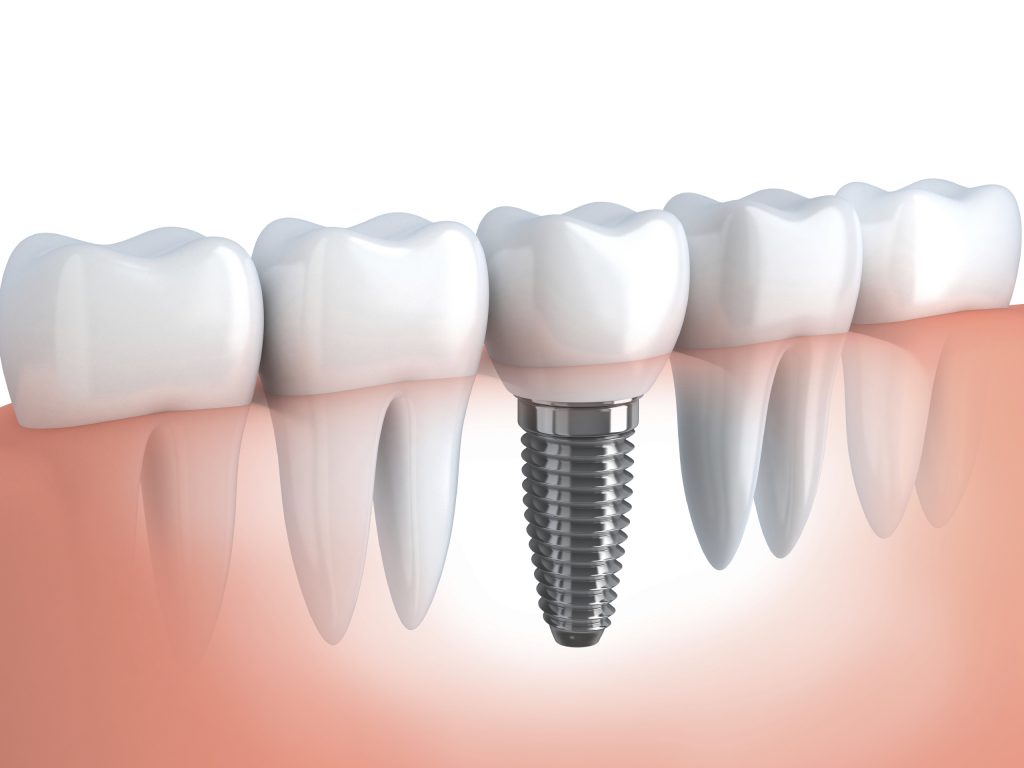Dental Implants in Vancouver
Restore Your Smile Permanently with Natural-Looking Implants
At Cambie Marine Gateway Dental, we specialize in advanced dental implant solutions designed to permanently replace missing or damaged teeth. Dental implants provide a stable, natural-looking alternative to dentures and bridges, restoring your smile's function, appearance, and confidence.

What Are Dental Implants?
A dental implant is a small titanium post surgically placed into your jawbone beneath the gum line, serving as an artificial tooth root. Over time, the implant fuses with the jawbone, providing a solid foundation for attaching a natural-looking prosthetic tooth (crown). Dental implants offer the closest experience to having natural teeth, without the inconvenience and limitations associated with dentures.
Benefits of Dental Implants
Choosing dental implants has several long-lasting benefits:
- Permanent solution: Unlike removable dentures, implants provide a stable, permanent tooth replacement.
- Natural appearance: Implants look and feel just like your natural teeth, blending seamlessly with your smile.
- Improved comfort and function: Eat, speak, and smile confidently without worrying about slipping dentures.
- Better oral health: Implants prevent bone loss, help maintain jaw structure, and preserve adjacent teeth from shifting.
- Easy maintenance: No special care or adhesives required; simply maintain regular brushing, flossing, and routine dental visits.
Are You a Good Candidate for Dental Implants?
Ideal candidates for dental implants generally meet the following criteria:
- Good overall health with no serious medical conditions.
- Fully developed jawbone (adults and older adolescents).
- Healthy gums without periodontal disease.
- Adequate jawbone density and volume.
You may not be a suitable candidate if you have:
- Significant gum disease or jawbone loss (though bone grafting might be an option).
- Poor general health or conditions affecting bone healing.
- Not yet fully developed adult teeth and jaw structures.
Our dental team will evaluate your oral health thoroughly to determine if dental implants are right for you.
The Dental Implant Procedure
The dental implant procedure involves several stages:
Initial Consultation
- Comprehensive dental examination, including x-rays or CBCT scans.
- Discuss your medical history and dental health goals.
Preparation Phase
- Extraction of damaged or decayed teeth, if needed.
- Treatment of existing gum disease and oral infections.
First Surgical Appointment
- Local anesthesia is administered.
- Small incisions are made in the gums, and implants are placed into the jawbone.
- Gums are stitched closed, and healing begins (7–10 days initial healing).
Healing and Osseointegration
- Approximately 3–5 months of healing time to allow the jawbone to fuse to the implant (osseointegration).
Second Surgical Appointment
- Gums are reopened minimally to attach an abutment (connector) to the implant.
- Gums heal around the abutment over several weeks.
Final Restoration
- Custom prosthetic teeth (crowns or bridges) are attached securely to the abutments.
- Your new teeth are adjusted to ensure optimal comfort, bite, and appearance.
Risks and Considerations
As with any surgical procedure, there are potential risks, including:
- Infection at the surgical site
- Excessive bleeding
- Nerve injury
- Implant rejection or failure
Although implant failure is rare, our team at Cambie Marine Gateway Dental will discuss all potential risks and provide guidance to ensure the highest success rate.
Caring for Your Dental Implants
Dental implants require no special care beyond regular dental hygiene:
- Brush and floss daily to prevent plaque buildup and maintain gum health.
- Attend regular dental checkups and cleanings to ensure long-term success.
Properly maintained implants can last a lifetime.
Book Your Dental Implant Consultation Today
Restore your smile permanently with high-quality dental implants at Cambie Marine Gateway Dental in Vancouver. Our experienced team is ready to help you achieve a strong, beautiful, and functional smile.
Contact us today to schedule your consultation.
